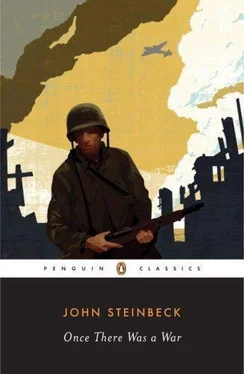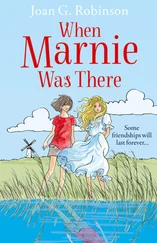John Steinbeck - Once there was a war
Здесь есть возможность читать онлайн «John Steinbeck - Once there was a war» весь текст электронной книги совершенно бесплатно (целиком полную версию без сокращений). В некоторых случаях можно слушать аудио, скачать через торрент в формате fb2 и присутствует краткое содержание. Город: New York, Год выпуска: 1960, Издательство: Bantam Books, Жанр: Классическая проза, на английском языке. Описание произведения, (предисловие) а так же отзывы посетителей доступны на портале библиотеки ЛибКат.
- Название:Once there was a war
- Автор:
- Издательство:Bantam Books
- Жанр:
- Год:1960
- Город:New York
- ISBN:нет данных
- Рейтинг книги:3 / 5. Голосов: 1
-
Избранное:Добавить в избранное
- Отзывы:
-
Ваша оценка:
- 60
- 1
- 2
- 3
- 4
- 5
Once there was a war: краткое содержание, описание и аннотация
Предлагаем к чтению аннотацию, описание, краткое содержание или предисловие (зависит от того, что написал сам автор книги «Once there was a war»). Если вы не нашли необходимую информацию о книге — напишите в комментариях, мы постараемся отыскать её.
Once there was a war — читать онлайн бесплатно полную книгу (весь текст) целиком
Ниже представлен текст книги, разбитый по страницам. Система сохранения места последней прочитанной страницы, позволяет с удобством читать онлайн бесплатно книгу «Once there was a war», без необходимости каждый раз заново искать на чём Вы остановились. Поставьте закладку, и сможете в любой момент перейти на страницу, на которой закончили чтение.
Интервал:
Закладка:
The CO of the post is a first lieutenant from Texas and the second in command is a Chicago second lieutenant. They are young and stern and friendly. The job of keeping the castle in order is just a job to them.
There is no point to any of this except the change of pageantry. The place, which was built for heralds and courtiers, for soldiers in body armor, is in no way outraged by the new thing. The jeeps and armored cars, the half-tracks that came in through the gates, the helmeted soldiers on the lawn do not seem out of place. They belong here. They are probably very little different from the earlier inhabitants. Certainly the king in question would have been glad for them, because he had his international troubles too.
THE YANKS ARRIVE
LONDON, July 28, 1943 —
The little gray English station is set in the green, rolling fields where the grass is being cut and, where the mowing machine has gone, the cut grass is wilting and the red poppies are wilting. The double tracks go by the front of the station and a “Y” siding runs in back of the station. At 4:03 the American commandant and four officers drive to the station. A British officer comes out of the signal-man’s room. “The train will be four minutes late,” he says. All the officers look at their watches. On the main line a through train roars through at about seventy miles an hour. The young lieutenant says, “I thought British trains were slow.”
“They used to hold the world’s record for speed,” the commandant says.
On another track a freight train moves rapidly through the station. The flat cars are loaded with tanks, a solid line of tanks the whole length of the train. A hundred yards from the station a clubmobile is parked, a bus converted into a kitchen for the cooking of doughnuts and coffee and run by two Red Cross girls. Their coffee urns are steaming and great baskets of doughnuts are accumulating. They lift out the doughnuts and load the baskets with them. On top of the bus is a loudspeaker connected with a phonograph.
The commandant says, “That big girl is a great one. We got five hundred men at six o’clock this morning. They were pretty tired. That big girl put on a record and did a Highland fling to some hot music. She’s a funny one.” The smell of the cooking doughnuts comes down the breeze.
The British officer comes out of the signalman’s house again. “It will be here in three minutes,” he says. And again the officers look at their watches. The little train comes around the bend. It passes the station, puts its tail into the “Y,” and backs into the siding. The compartments are solid with helmeted men and their equipment is piled in front of them to the knees. Their faces are almost as brown as their uniforms. They are sitting with their packs on. It is a hot afternoon, one of the few of the summer.
As the train pulls in, the phonograph in the clubmobile howls, “Mr. Five by Five.” The sound carries a long way. The soldiers turn their heads slowly and look toward the music. Now a sergeant runs down the side of the train and opens the doors of the compartments but the men do not move. A stout captain, with a very black mustache, shouts, “All right, men. Pile out of it.” And the little compartments disgorge the men. They stand helplessly on the platform, their shoulders damp with sweat under the pack straps and their backs wet under the packs. They carry their barracks bags too and the things which won’t go in, a guitar here, and a mandolin, a pair of shoes. One man has a mongrel fox terrier on a string and it stands beside him panting with excitement.
The stout, worried captain gets the men lined up and marches them to the clubmobile. Swing music is still shrieking from the loudspeaker on the roof. A single file of men passes a little counter on a side of the truck and each one gets a big cup of coffee and two doughnuts. Then they break their ranks and stand about drinking the coffee and looking lost. The big girl comes out of the truck and works on them.
“Where you from, boy?”
“Michigan.”
“Why, we’re neighbors. I come from Illinois.”
A local wolf, a slicker at home, a dark boy with sideburns, says wearily and just from a sense of duty, “What you doing tonight, baby?”
“What are you doing?” the big girl asks, and the men about laugh loudly as if it were very funny.
The tired wolf puts an arm about her waist. “Plant me,” he says, and the two do a grotesque shag, a kind of slow-motion jitterbug.
A blond boy with a sunburned nose and red eyelids shyly approaches a lieutenant. He has his coffee in one hand and his two doughnuts in the other. Too late he realizes that he is in trouble. He balances the two doughnuts on the edge of his cup and they promptly fall into the coffee. He salutes and the lieutenant returns it gravely.
“Excuse me, sir,” the boy says. “Aren’t you a movie star?”
“I used to be,” the lieutenant says. “I used to be.”
“I knew I’d seen you in pictures,” the boy says. “I’ll write home about seeing you here. Say,” he says with excitement, “would you write your name here on something and I could send it home and then they’d have to believe me and they could keep it for me.”
“Sure,” the lieutenant says, and he signs his name with a pencil on the back of a grubby envelope from the soldier’s pocket. The boy regards it for a moment.
“What’re you doing here?” he asks.
“Why, I’m just in the Army, the same as you are.”
“Oh, yes, of course. Yes, I see you are. Well, they’ll have to believe I saw you now.”
“How long have you been over?” the lieutenant asks.
“We’re not supposed to say anything about stuff like that.”
“Sure, I forgot. Good boy to remember it.”
The doughnuts in the coffee have become semi-liquid by now. The boy drinks the coffee and the doughnuts without noticing.
“Do you suppose we’ll ever be let to go to London?” he asks.
“Sure. When you get a pass.”
“Well, that’s a long way off, isn’t it?”
“Not so far. You could make it on a forty-eight hour pass easy and have lots of time.”
“Well. Are there lots of girls there?”
“Sure. Plenty.”
“And will they, will they talk to a guy?”
“Sure they will.”
“Hot damn!” says the boy. “Oh, hot damn!”
“Fall in,” the stout, worried captain shouts, and, “Fall in,” the sergeants shout. The blond boy gets in line, still holding his cup. The big girl yells at him over the music, “Hey, sonny. We need those cups.”
She rushes fiercely up to him and grabs the cup and then quickly pats him once on the shoulder. The men on both sides of him laugh loudly, as if it were very funny.
A HAND
LONDON, July 29, 1943 —
The soldier wears a maroon bathrobe and pajamas and slippers, the uniform of the Army hospital. He is a little pale and shaky, the way convalescents are. His left arm he carries crooked and high, and the fingers of his left hand hook over helplessly. In front of him on a table is a half-built model of a Liberator. Not covered yet, but a mass of tiny struts and ribs and braces. And he has a sheet of balsa wood, stamped with the patterns, and he has a razor blade and a little bowl of glue, with a match sticking out of it.
“I got hurt in Africa,” he says. “Got hit in the stomach, but they fixed that up pretty good.” He holds up his left arm. “This is what bothers me,” he says. “That was broke awful bad. I haven’t been out of a cast long.” He moves the fingers slightly. “Not much feeling in them,” he says. “I can’t make a fist. I can’t grab hold of anything. At least, I couldn’t. It’s kind of numb.
Читать дальшеИнтервал:
Закладка:
Похожие книги на «Once there was a war»
Представляем Вашему вниманию похожие книги на «Once there was a war» списком для выбора. Мы отобрали схожую по названию и смыслу литературу в надежде предоставить читателям больше вариантов отыскать новые, интересные, ещё непрочитанные произведения.
Обсуждение, отзывы о книге «Once there was a war» и просто собственные мнения читателей. Оставьте ваши комментарии, напишите, что Вы думаете о произведении, его смысле или главных героях. Укажите что конкретно понравилось, а что нет, и почему Вы так считаете.









